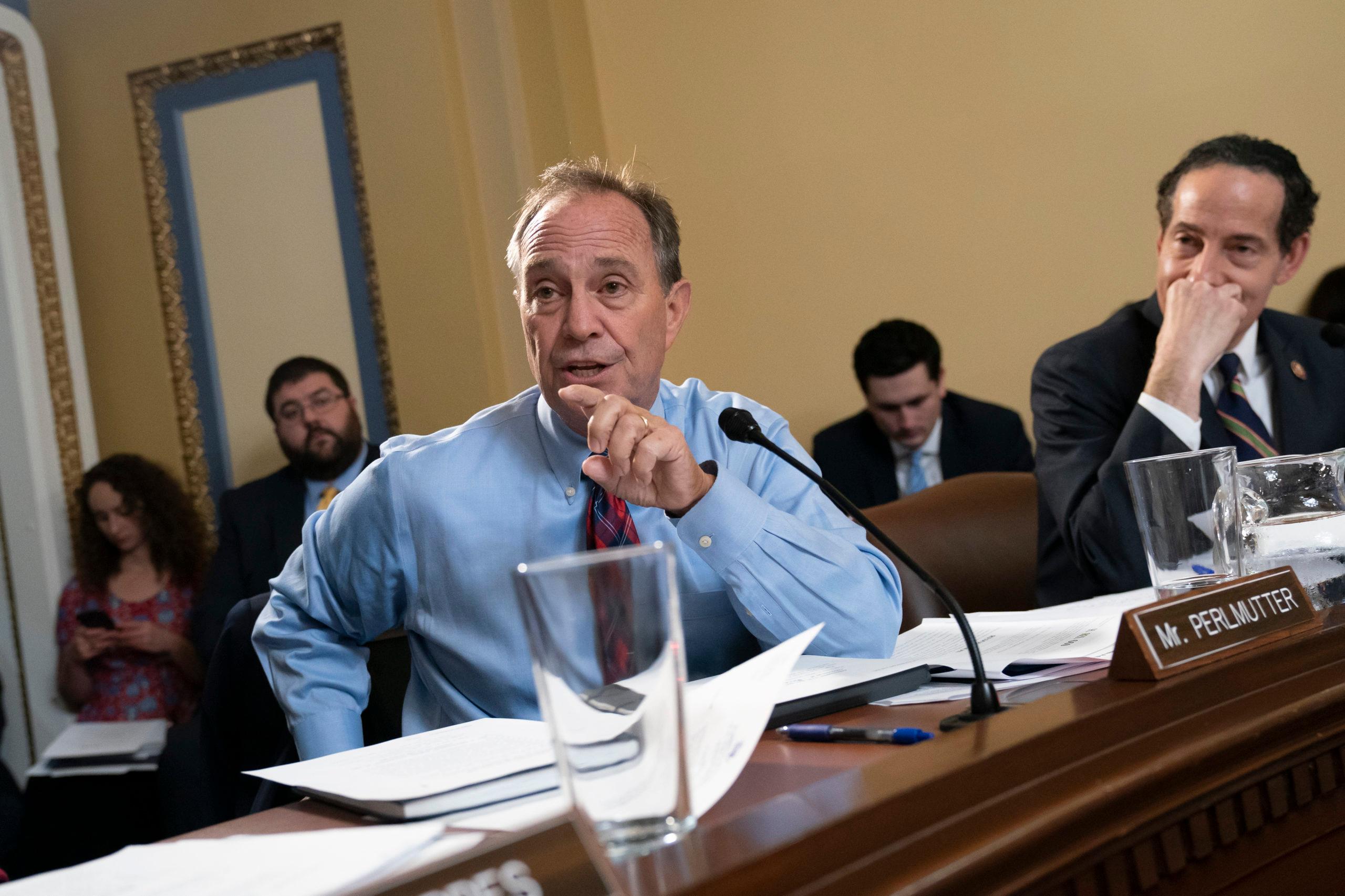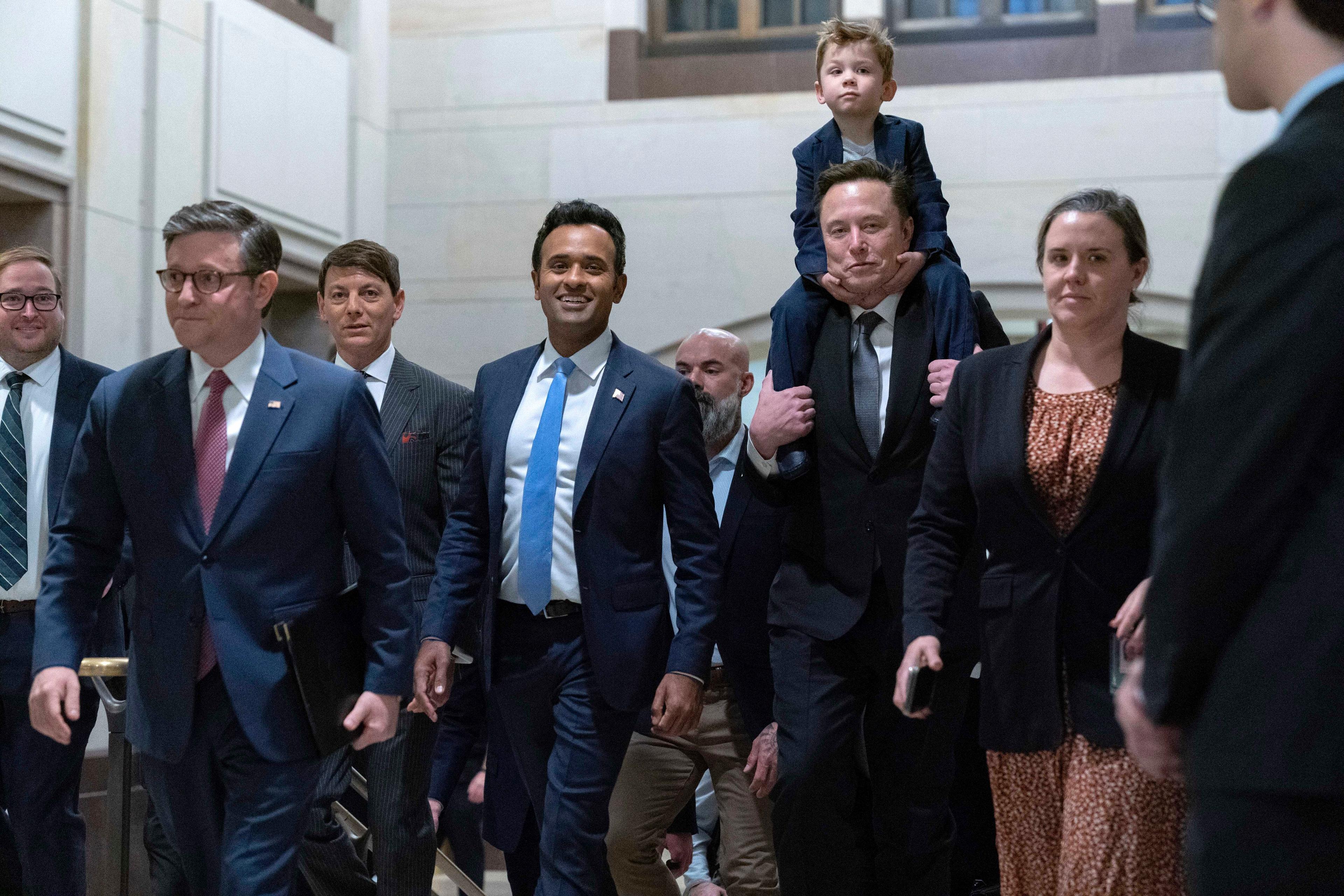
When talk of a possible impeachment inquiry into President Donald Trump began to circulate in Congress, Democratic Rep. Ed Perlmutter was leery. He issued a statement that said Congress should “keep working on the nuts and bolts issues that matter most to Americans, like reducing the costs of health care and rebuilding our infrastructure.”
Similarly, after the 2018 midterm elections, Perlmutter, who represents Colorado's 7th District, was part of a Democratic insurrection focused on preventing Nancy Pelosi from becoming Speaker of the House. He had thought the midterms were a mandate for sweeping change.
Today, Perlmutter's thinking has changed on both fronts.
"Quite frankly, I was wrong," Perlmutter told Colorado Matters.
"(I) was wrong in seeking that change just for change's sake ... I think Pelosi particularly has done an excellent job in leading our caucus."
That leadership has been most evident, Perlmutter added, in Pelosi's decision to open the impeachment inquiry. The Speaker raised the stakes when she announced that the House would draft articles of impeachment against President Trump. A full House vote could come before Christmas.
Perlmutter remains hopeful that, should Trump be impeached in the House, that he would be convicted by trial in the Senate.
"I may be wrong in (hoping) that my colleagues — many of whom truly are my friends — on the Republican side of the aisle will say, 'OK, that's enough.'"
Perlmutter also discussed the House passage of the Safe Banking Act out of the chamber. As a member of the House Financial Services Committee, he's been working for more than six years on the measure, which is designed to allow cannabis businesses access to the federal banking system.
He adds the bill is not an attempt to legalize marijuana federally.
"The legislation we proposed (is) to get the cash off the streets because of the public safety problems that it causes; there's just so much cash that generated by this business, we need to get it off the streets," Perlmutter said. "There are other pieces of legislation to de-schedule it, to deal with taxes, to deal with testing and those kinds of things. But from my committee's point of view, the focus is on the banking transactions and the cash."
There's also Perlmutter's work on another committee: Science, Space and Technology. In 2033, he said the orbits of Earth and Mars will be aligned, perhaps easing the way for manned space flight to the Red Planet.
"That would be the prime year," he said. "It would cut off months of travel time, space, travel time, and is much safer for our astronauts."
Full Transcript
| Ryan Warner: Democratic Congressman Ed Perlmutter believes President Trump should be impeached. Perlmutter was leery early on, but now says the case has been made that there was an attempt to extort Ukraine for dirt on a political opponent. Perlmutter represents Colorado's 7th District, which includes Golden, Arvada, Lakewood, and Westminster. We're checking in with members of the Congressional delegation as the year winds down. And today, with Perlmutter, we'll talk about marijuana and Mars. But first, he says his mission in 2020 will be to hold the president accountable, should he stay in office. I asked for an example. Ed Perlmutter: Well, for instance, we in the House Financial Services Committee two and a half years ago, asked for bank records out of the Deutsche Bank pertaining to what we think may be money funneled from Russia to the Trump Campaign. Well, Deutsche Bank ultimately was prepared to turn over the documents. The President objected. Then the District Court said to Deutsche Bank, turnover the documents. Then the President appealed to the Second Circuit, which said, turn over the documents and still the President and the Administration refused to turn over these documents and we'll just have to see where that goes. So that's one thing, certainly within the purview of the Financial Services Committee and something we started two and a half years ago. RW: One place it could go of course is the U.S. Supreme Court, which currently has more conservatives than liberals. EP: It does. And I think the President has appealed that along with the order from another court to turn over the tax documents to the Supreme Court. I just wonder why keep stonewalling this? What's to be hidden here? What's the big deal? Why not present these documents? Every President up until this President turned over their tax records. RW: I think it's interesting that we're talking about impeachment, which has largely been spearheaded by House Speaker, Nancy Pelosi. Almost a year after there was something of an insurrection in Congress to ouster as Speaker. At the time, you argued that the results of the 2018 election were a mandate to change leadership. You eventually changed course on that, but do you wonder what might have happened if Pelosi had lost her position? EP: Well, at this point, I can tell you I think I was wrong in seeking that change, just for change's sake. This leadership team of Nancy Pelosi, Steny Hoyer and Jim Clyburn has really done an excellent job of helping guide our new members and our democratic members generally in connection with this session of Congress. So, and I think Pelosi particularly has done an excellent job in leading our caucus and in dealing with first a big government shutdown. And I think she was particularly reluctant to move forward on any impeachment. (She) wanted to see where the Mueller Report went. Even though there were things in there that were very disturbing, I think for her too the effort to bribe a foreign government with aid that the Congress had already appropriated to help Ukraine defend itself against Russia. I think for her too, that was the straw that broke the camel's back. RW: Wasn't there a commitment early on though that Democrats would proceed with impeachment only if there were bipartisan support for it. What happened to that commitment? EP: Or where the facts lead and there's a whole organization called Republicans for the Rule of Law, which has actually run ads across the country that ask for the Republican members of the Congress and the Senate as well as the White House to uphold the constitution and to uphold the concept of the Rule of Law that nobody is above the law and I hope and I may be wrong in bringing this hope that my colleagues and many of whom truly are my friends on the Republican side of the aisle will say, okay, that's enough. RW: In September after six years of work, the Safe Banking Act, which you co-sponsored passed in the house, it would allow the cannabis industry access to the Federal Banking System. The bill now is in the Senate. First of all, does this practically legalize the drug federally? Would it take it off schedule one? EP: No, it is pretty narrowly tailored to dealing with the banking and financial issues. RW: Got it. EP: So that if a business is legal in a particular state and it does business with its landlords and its accountants and everything else, that the cash can go to a bank right now under federal law — RW: Isn't that kind of a mealy approach. In other words, why not take the bold approach and just say we're going to legalize this federally, or at least the federal government will recognize in states that have legalized it, that it's legal there? EP: Ryan, it's not a mealy approach. The legislation we proposed to get the cash off the streets because of the public safety problems that it causes. We've had a murder of Travis Mason as you know in Aurora because so much cash was available in that dispensary and there's just so much cash that generated by this business. We need to get it off the streets. EP: And so since 1971, when marijuana was made illegal or anything with THC in it, this is the first legislation that had a hearing, got a mark up in committee, got to the floor and we had 321 votes. There are other pieces of legislation to de-schedule it to deal with taxes, to deal with testing and those kinds of things. But from my committee point-of-view, financial services, the focus is on the banking transactions and the cash. RW: Is this going to fly for Mitch McConnell in the Senate? EP: We think so. We added hemp, which in Kentucky is now become a major cash crop. hemp has had some problems. We've had hemp being shipped from Kentucky to Colorado that was seized in Oklahoma and the drivers of the trucks thrown in jail in Oklahoma. So there's a hemp piece that may be attractive to Mitch McConnell and there is some banking stuff that I think is attractive to Chairman Crapo from Idaho to move this bill forward. EP: And if it does move forward, it would be kind of the exception over there and not the rule because 275 bipartisan bills have yet to be acted upon by the Senate. RW: You also serve, Ed Perlmutter, on the Science Space and Technology Committee where last month you introduced a bill, a companion actually to one in the Senate, co-sponsored by Colorado Republican, Cory Gardner that promotes research and observation of space weather. With so much political divisiveness over climate change and weather events here on earth, why does space weather get bipartisan support? Why is researching it so important? EP: So space weather deals with radiation that comes off the sun and when it's explosive through solar flares, that radiation can affect the earth in a whole variety of ways. Dealing with our communication systems, our electrical grid, it has the potential for knocking out our satellites. RW: And apparently there is bipartisan belief in solar flares unlike climate change, human-caused climate change. EP: Yes. I think, yeah, we are astronomers and those that study the sun, I think in a bipartisan way, yes, would agree that there are solar flares and that there's potential damage that comes from that kind of activity on the sun. RW: You are also pushing for the U.S. to send astronauts to Mars in the year 2033, what's the thinking? Why is that the magic number? EP: Well, three years ago we had testimony from a couple of NASA senior engineers and I asked him, I said, look, we were on the moon at that point, I was 47 years ago. Now it's 50 years ago. I said, I figured we would have been to Mars by now. And they said, no, for a whole variety of reasons, starting with the cost of the Vietnam War that didn't come to pass. EP: And I say, well, I'd like to see us continue to do space exploration. When can we get to Mars? I think we should get there. And they said, well, 2033 to put the pieces back together, the building blocks back together, 2033 would be the prime year because in that year the orbits of Earth and Mars are the closest that there'll be for decades and that that cuts off months of travel time, space travel time and is much safer for our astronauts because of the radiation coming off the sun that we were just talking about with respect to space weather. RW: Well, let's wrap up with earthlings. In September, you hosted your 100th Government in the Grocery. This is where you set up shop in a supermarket, invite constituents to come and talk with you about their concerns and Congressman Perlmutter, I just want to play a clip from one of these events that occurred back in 2009. Audio Clip of Perlmutter in 2009: I just want to thank everybody again for turning out today, sharing your opinion about everything. Obviously, this was not a typical one. We've done dozens. Now — RW: Okay. So these are the King Soopers, hundreds of protesters showed up there angry about President Obama's Affordable Care Act. Here we are a decade later. And I'm just wondering what changes have you seen in these events over the years? Do they get more caustic? Do they just always vary? Does it tell us anything about the state of the electorate or the democracy? EP: That was the one that was the biggest and most boisterous, and it wasn't hundreds of protesters, but there were, the crowd was about half in favor of the Affordable Care Act and half against. And many of them had come in from outside of my district to kind of shake up what ordinarily 25 to 50 people coming, one person at a time to talk about issues really specific to them. EP: And they could be major issues. They want to talk about climate change or they want to talk about peace in the Middle East. Or it could be specific to the family about a Medicare issue or a veteran who hadn't gotten a medal. So generally these things have been very personal, generally pretty tame. And that one was big and boisterous and we got through it and it took about three hours and the King Soopers moved us from inside the floral department to outside in the parking lot. But it worked out. RW: Was that just because of the crowd size or just the — EP: The size was just, it would have overwhelmed the store. But we've done a hundred of these now and we had a pretty boisterous one couple of years ago when President Trump had just been elected. It was at Natural Grocers over in Golden, where we had a couple of hundred, maybe 220 people that came into that. But other than those two specifics, they've all been much more personal, much more individual. EP: But every now and again, something either because it's orchestrated, which I feel like the one that was up in Brighton was very orchestrated. Lots of folks busted in just to kind of inflame things. But most of the time folks really have specific things they want to talk about. RW: Congressman, thanks so much for your time. EP: You're very welcome, Ryan. Thank you for your time. |
This story is part of a series of conversations on Colorado Matters with members of the Colorado congressional delegation.









